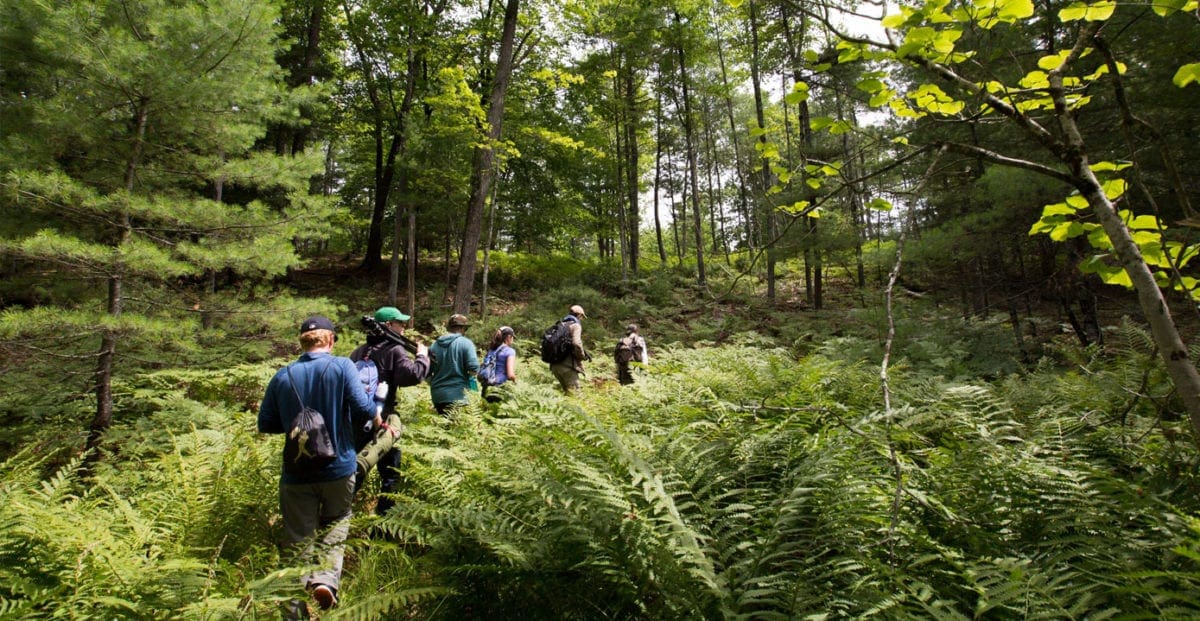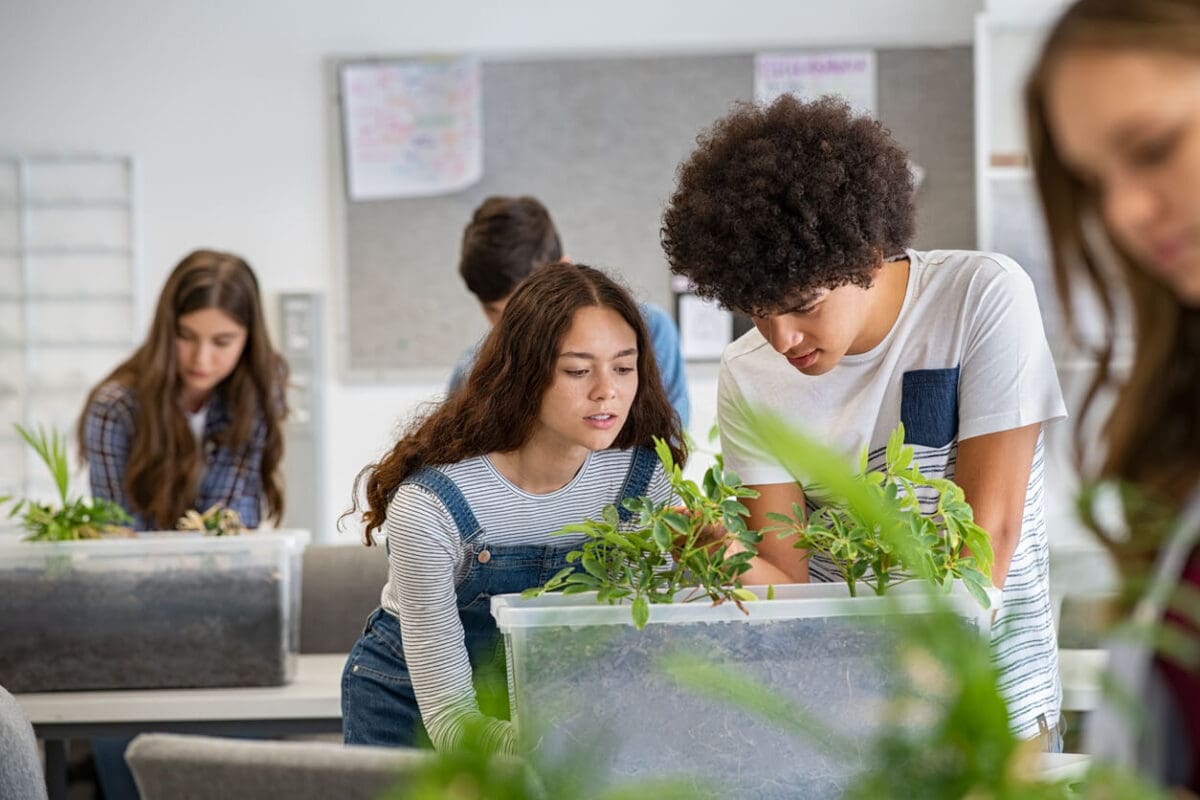
What Is Experiential Learning In Higher Education?
If you are looking for a college education that will prepare you for real-world situations in your career, consider programs that include experiential learning. But what is experiential learning, and how can it transform your education?
Experiential learning is an effective type of education that societies have valued for centuries. The ancient Chinese philosopher Confucius famously said, “I hear, and I forget. I see, and I remember. I do, and I understand.” Let’s explore what experiential learning in higher education looks like today.
- What Is Experiential Learning?
- Types Of Experiential Learning
- Why Is Experiential Learning Important In Higher Education?

Master’s students at Unity Environmental University work on transdisciplinary projects, forming strong connections with faculty and organizations in their field.
What Is Experiential Learning?
Experiential learning is learning through experience, observation, and reflection. In other words, it’s hands-on learning. While experiential education is not new, it is very different from what many view as traditional education. It usually involves a teacher telling and sometimes showing information to students, but students may passively learn through this educative experience. With project-based learning and actively engaging education, students can practice their learning in and out of the classroom.
Common examples of experiential learning include:
- Internships
- Practicums
- Fieldwork
- Service learning
- Student teaching
- Clinical assignments
- Community service or research
- Study abroad
How Unity Environmental College Utilizes Experiential Education
At Unity, our online and hybrid programs integrate experiential learning into our student-centered learning experience design. That means even students taking classes 100% online are getting the same value education as those taking in-person classes. Our experiential learning methods include field studies, internships, and community projects. Most recently, we have partnered with Discover Eden and other organizations to provide hands-on experiences in wildlife conservation, marine biology, and ecology.

Ready To Learn More About Unity Environmental University?

Learn the pros and cons of online vs. in-person classes in higher education.
Types Of Experiential Learning
When answering what experiential education is, it’s important to define the roles of the learner and the teacher and the different types of experiential learning. Experiential learning should be student-centric. The student should find a personal interest or passion in the course material, and the teacher should act as a facilitator to guide the student and provide resources and opportunities when appropriate. The teacher and students should be flexible in trying different experiential learning methods to solve problems.
Active Experiential Learning
Active learning involves engagement in concrete experiences or experiments. It’s the doing part of experiential education.
Active experiential learning examples:
- Hands-on laboratory work
- Simulations
- Participatory workshops
Passive Experiential Learning
Some experiential learning activities involve more watching and reflecting than doing. These are referred to as passive experiential learning activities. These activities differ from traditional lectures because they focus on real-world applications of your education.
Passive experiential learning examples:
- Shadowing professionals in your field
- Attending guest lectures
- Analyzing case studies

“Accessible, affordable, and flexible education is more than just the foundation of Unity’s success. It is imperative to our society at large.” – Dr. Melik Peter Khoury, President of Unity
Why Is Experiential Learning Important In Higher Education? 6 Benefits Of Experiential Learning
The advantages of teaching and learning in an experiential environment in higher education cannot be overstated. Advantages can include but are not limited to:
- Improved critical thinking skills
- Building relevant experience for your resume
- Making connections to potential references and referrals for jobs after graduation
- Practice collaborating with diverse groups of people in professional settings
- Increased community involvement
- Improved self-confidence and leadership skills
Unity Environmental University Helps Connect Students To Experiential Learning Opportunities Outside The Classroom
Why is experiential learning important to us? Unity understands the power of an educated society and that experiential education helps students gain a deeper grasp of course topics and skills. Our focus on sustainable science also means we are actively striving to prepare students to create new and innovative solutions to the planet’s most pressing challenges.
Unity Environmental University has been a leader in environmental education for nearly 60 years and partners with many employers and organizations to help place students in internships and other experiential learning activities outside of the classroom. From being the first college to divest from fossil fuels to ranking #1 in the 2023 Social Mobility Index Report for universities in Maine, explore everything that makes Unity unique.



